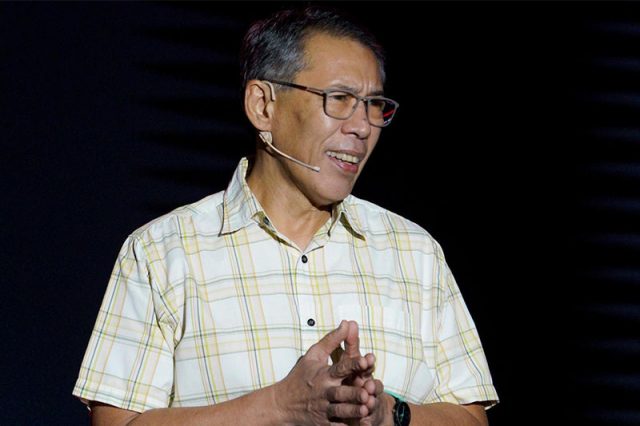
The Maharlika Investment Fund (MIF) was deemed to be only posing as a sovereign wealth fund.
Former senatorial candidate Chel Diokno stated this in a tweet on June 1, following the Senate’s approval of the bill that will create it.
Senate Bill No. 2020, also known as the Maharlika Investment Fund Act of 2023 in the 19th Congress, was approved by 19 lawmakers in the upper chamber last Wednesday, May 31.
The MIF is also called the sovereign wealth fund (SWF) in the proposed measure. It was intended to help the government generate more income to promote economic development in the Philippines.
RELATED: Maharlika Investment Fund: What it is and how it can affect Filipinos | Who voted for it? Senators’ positions as Maharlika bill gets approved
Diokno, however, argued that the former is different from SWF.
In a Twitter thread, he explained that SWFs normally use “reserves” of governments.
The Philippines rather has a budget deficit instead of reserves or excess funds.
“A true sovereign wealth fund uses a country’s surplus reserves. But with a budget deficit, a trade and balance of payments deficit, and rising public debt, we simply do not have any excess funds to put into the MIF,” the veteran lawyer said.
Diokno thus described the MIF bill as “full of false pretenses.”
“Like so many fake things going around these days, the Maharlika Investment Fund (MIF) is full of false pretenses. It pretends to be a sovereign wealth fund but it is not,” he said.
1/8 Like so many fake things going around these days, the Maharlika Investment Fund (MIF) is full of false pretenses. It pretends to be a sovereign wealth fund but it is not.👎🇵🇭
— Chel Diokno (@ChelDiokno) June 1, 2023
Diokno, who is also the chairman of the Free Legal Assistance Group (FLAG), then expressed concern about the source of funding for the MIF, citing the nature of the bill itself as “suspicious.”
“So, what’s used isn’t surplus—since we have none—but the core funds of government banks and other government corporations designated for various purposes according to their charter. From the start, this proposed bill is suspicious,” he said.
Under Senate Bill No. 2020, the MIF will come from different state-run financial institutions. These include the Land Bank of the Philippines, the Development Bank of the Philippines and the Philippine Gaming Corp.
Among the amendments to the Senate’s version of the measure include the prohibition of investments in MIF from the Social Security System (SSS), Government Service Insurance System (GSIS), Philippine Health Insurance Corp., Home Development Mutual Fund, Overseas Workers Welfare Administration and Philippine Veterans Affairs Office.
President Ferdinand Marcos Jr. previously assured the public that the government will not use state pension funds as “seed money” for the proposed MIF. But he said it would still depend to the SSS and GSIS whether to invest in the state sovereign fund.
Sovereign vs investment fund
Investopedia, an information hub about money and finance, defines an investment fund as a general term for “a supply of capital belonging to numerous investors used to collectively purchase securities while each investor retains ownership and control of his own shares.”
Meanwhile, the Sovereign Wealth Fund Institute defines the SWF as a type of investment fund that a government establishes and owns.
An SWF may originate from the following:
- Commodity exports
- Transfers of assets from foreign reserves
- Fiscal surpluses
- Resource exports
On the SWFI website, it was stated that “assets for the benefit of individuals” and “government-employee pension funds” are not considered SWFs.
The top five countries with the largest SWFs in the world are:
- Norway
- China
- Abu Dhabi
- Kuwait
- Singapore
More concerns
In his tweet, Diokno also expressed concern about the Maharlika Investment Corp. (MIC), which is the entity that will manage the MIF.
“If the MIF becomes law, the Maharlika Investment Corp. (MIC) will be established, managing funds amounting to P500 billion. In other words, we’re removing control of these public funds from existing government agencies and handing it over to those appointed by the president to the MIC,” he said.
“The MIF, according to its proponents, will promote socio-economic development. But is this the right way?” he added.
Diokno ended his tweet with a call for vigilance for government transparency about the proposed legislative measure.
“Transparency is key to ensuring that this doesn’t just turn into another vehicle for corruption and personal gain. Our focus should always be on the betterment of the Filipino people. Let’s stay vigilant!” he said.









